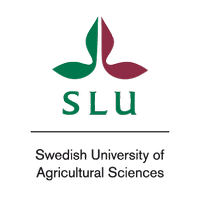SLU - Swedish University of Agricultural Sciences, Sweden
The Swedish University of Agricultural Sciences creates and integrates knowledge about production, the environment, and animal and human health and quality of life, combining scientific excellence with competence in application-oriented issues. SLU's sectoral role, which initially only concerned the agricultural industries, has in recent years broadened and developed. SLU works continuously to develop conditions for innovative, excellent research and research-based education. During the period from 2017–2020, SLU intends to focus on four university-wide research domains: bio-based materials, sustainable and secure food supply, economics and the significance of experiencing nature and of companion animals on human health and well-being. SLU has 4 main campuses, of which the one in Alnarp (LTV faculty) considers horticulture, landscaping as well as agriculture and hosts 5 departments, among these Dept of Biosystems and Technology. The activities at the Department of Biosystems and Technology are grouped into five sections, namely horticultural crop physiology, microbial horticulture, agroecology, technology, animal housing and welfare. Main research activities in the Microbial Horticulture unit comprise the interaction between microorganisms and horticultural cropping systems as well as produce within the farm-to-fork continuum, focusing on environmental health, public health and plant health. Both in- and outdoor cropping systems are considered. The team has state-of-the-art laboratory facilities, including facilities for DNA-based analysis as well as contained laboratories for analysing risk class 2 and 3 organisms, experimental greenhouses and a recently inaugurated state-of-the-art phytotrone. SLU is a partner in the national Swedish SciLife platform. The LTV faculty hosts an industry-academia network with 78 partners - Partnerskap Alnarp - which facilitates contacts and outreach to Swedish growers, suppliers, related industries, authorities and foundations. The Microbial Horticulture group consists of 12 staff members of these one full professor, one associate professor, one researcher, one assistant professor, two postdoctoral fellows, 1 guest researcher, one research assistant, 4 PhD students and one PhD prospect.
Role in the project
The role of SLU is to coordinate the research activities related to functional biodiversity within the different regional approaches, to pursue the studies on soil microbial biodiversity, soil microbial activity, soil microbial biomass and soil disease suppressiveness as related to different greenhouse crop rotation approaches, to interact with the other units for identifying soil biodiversity with respect to athropodes, nematodes and weeds and to disseminate findings to stakeholders and the scientific community.

 tap and then scroll down to the Add to Home Screen command.
tap and then scroll down to the Add to Home Screen command.